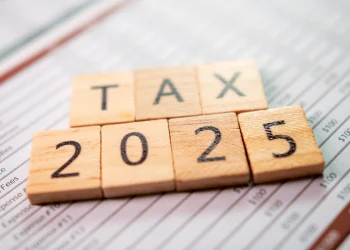A question that many young people have on their minds is whether building credit is important or not. Knowing the answer to that early on is very important. Also understanding the importance of credit can inspire you to work toward obtaining a high credit score. This article will take you through knowing the importance of credit to the benefits and ways you can build your credit.
Why Building Credit is Important?
Our credit scores influence many financial areas well into adulthood and beyond. Lenders look to credit reports when deciding terms for loans, mortgages, credit cards, and more. Landlords check credit in rental applications and employers may examine them for some roles. Insurance companies also reference credit data to set premium rates.
Maintaining strong credit proves beneficial across these different sectors. However, the benefits extend beyond individual transactions as it fosters prudent financial habits and options for long-term well-being. Building credit responsibly from an early age strategically positions you to make the most of opportunities and withstand unforeseen challenges throughout life.
Benefits of Building Credit
Access to Credit and Lower Borrowing Costs
Credit scores measure how likely someone is to repay debt successfully. Lenders reward those with excellent credit scores by offering the lowest interest rates, reflecting decreased risk to them.
For example, on auto loans, borrowers with top-tier credit in the 740-850 range often see rates 1-2% lower than fair-credit (600-649) counterparts. On a $25,000 loan over 5 years, that translates to paying $900+ less in total interest costs.
As you make on-time payments and responsible credit use improves your score gradually over the years, subsequent loans will carry lower and lower rates – translating to huge lifetime savings. Maintaining a track record primes the future- you to benefit maximally from low-cost financing opportunities.
Rental Housing Applications
In rental markets with high demand, poor or limited credit can result in an automatic rejection of the application. Landlords want tenants with an established history of meeting financial obligations every month so unpaid rents won’t disrupt their income flow.
Building positive payment histories on credit cards you close each statement balance with, utility accounts and rent reported monthly strengthen rental resumes. Demonstrating creditworthiness proactively increases chances of approval and potential rent discounts at competitive properties down the line.
Employment Opportunities
Credit behaviors provide insight into character attributes like trustworthiness and responsibility relevant to some jobs. While employers cannot reject candidates solely due to credit, adverse findings may raise concerns requiring explanation during interviews.
Presenting a well-maintained record upfront removes potential hesitation from hiring managers. Young professionals benefit greatly from exhibiting financial maturity before crucial career stages like graduate programs or new opportunities.
Insurance Rate Discounts
Insurers cross-reference credit when pricing policies, recognizing minimal risks bring lower costs. Consistently low credit utilization and on-time payments coincide with prudent driving habits and diligence reducing claims – meaning lower payout likelihood for providers.
Studies link small increases in credit scores to 5-10% lower auto and homeowner premiums on average due to placement in preferred risk tiers. Establishing a record of responsibility from early on makes these discounts available much earlier in life.
How to Build Credit Efficiently

Now that you know why credit is important and all the benefits that could come with it, you can start learning how to build credit yourself. First, pay all bills in full and on time. Late or missed payments severely damage scores, imposing long-lasting penalties. Set reminders to pay statements by the due date each month.
Also monitor credit utilization, aiming to use no more than 30% of available credit across all accounts. Pay down credit cards gradually. Avoid moving large sums to new 0% introductory offers which generate multiple hard inquiries hurting scores slightly each time.
Control your credit mix carefully. “Revolvers” like cards complement “installment” accounts including loans and make utilization matter less with age.
Correct reporting errors immediately by disputing differences with issuers and reporting bureaus in writing. Unaddressed blips hurt far longer than they should. While maintaining credit is important, being consistent also helps to develop financial responsibility and reduce stress in the future. Using these best practices every reporting period will surely benefit you in the long run.
Conclusion
There are countless reasons why managing credit starting in young adulthood is very smart and beneficial. Not only does it help future qualification concerns, but an active approach qualifies borrowers for the lowest costs on crucial obligations for decades. Slow, steady maintenance prevents damage while establishing smart financial habits.
Building a strong credit foundation sets individuals up to handle life’s changes and challenges with confidence instead of constraints. The more effort invested in cultivating a positive credit profile early on, the bigger dividends pay off throughout careers and beyond. With discipline and awareness of credit’s role, individuals gain a powerful long-term tool for security, opportunity, and overall financial success.
Disclaimer
All investments and strategies involve the risk of loss, and nothing featured on Finance Today guarantees positive results, profit or protection against losses. Finance Today does not endorse any companies, products, or services that may be referenced on this site. Readers should not make any financial decision or strategy based solely on the information provided here.













